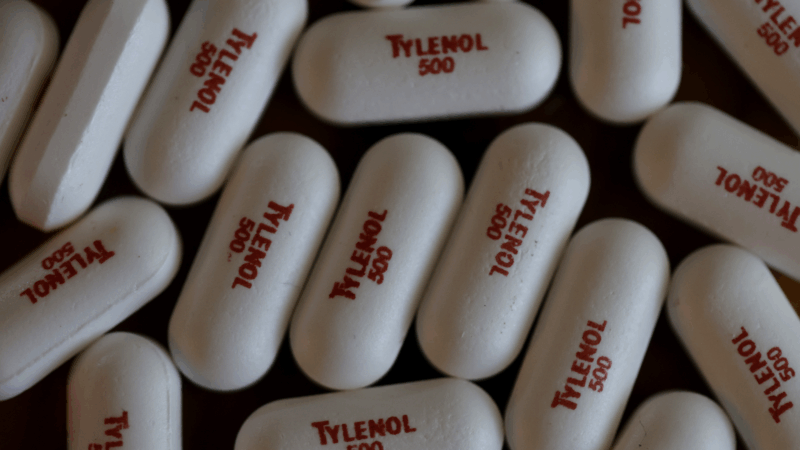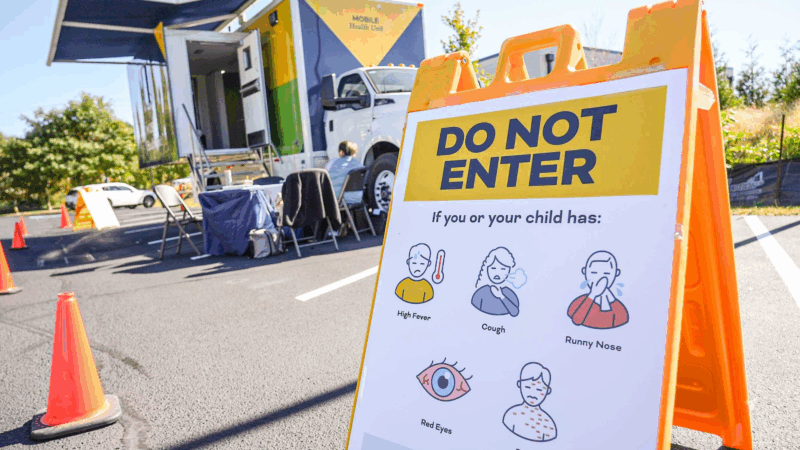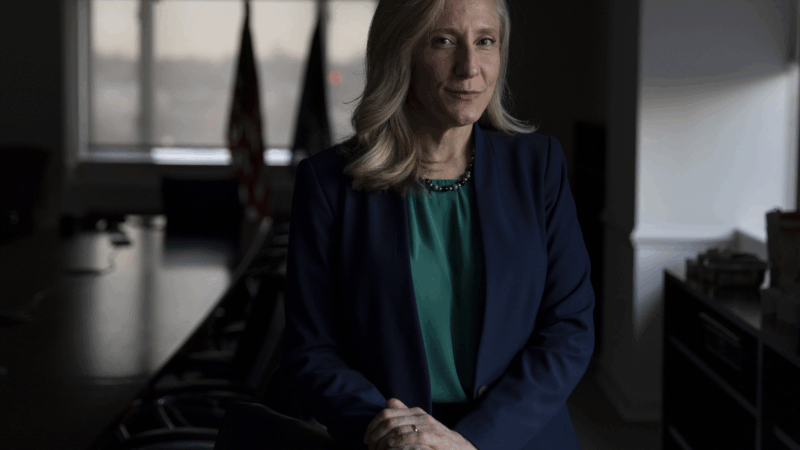Trump’s Tylenol warning echoes past misconceptions about mothers and autism
This week, President Trump urged pregnant women to “tough it out” and take Tylenol sparingly on the basis that there’s a link between the active ingredient in the pain killer, acetaminophen, and autism.
Medical experts have strongly pushed back on the guidance, arguing that such claims are misleading and research shows there’s no causal link between acetaminophen and autism. The Food and Drug Administration also later clarified that “while an association between acetaminophen and autism has been described in many studies, a causal relationship has not been established and there are contrary studies in the scientific literature.”
Still, the remarks on Monday sparked confusion, worry and guilt among pregnant women and families with children who have autism. Medical scholars say it’s part of a pattern in the history of medicine and autism research.
“ We really have a long history of blaming mothers in this country, and we’re seeing that reinforced through the narratives around autism’s causes right now,” said Martine Lappé, a sociology professor at California Polytechnic State University, San Luis Obispo, who has studied how autism science and advocacy have affected families.
Autism spectrum disorder, as it is officially called, is a complex neurodevelopmental condition, with a wide range of characteristics and support levels. There are more than 100 genes associated with it. Historically, efforts to find a singular cause for autism has led to scrutinizing parents and fueling stigma about autism, Lappé added.
In the mid-20th century, working moms were wrongly associated with autism
In the 1940s, not long after autism was recognized as a distinct condition, blame quickly fell on mothers — specifically those with careers or college degrees.
The leading child psychiatrist at the time, Leo Kanner, observed that many of his young patients with autism had mothers who were highly educated or working professionals, and also seemed emotionally cold. Kanner concluded that a lack of parental warmth drove children to retreat into behaviors associated with autism, in what later became known as the “refrigerator mom” theory.
“ A cold mother, at the time, pretty much meant an intellectual mother, a mother who had other interests besides raising her children,” said Marga Vicedo, a historian of science at the University of Toronto, Canada, who has published a book on the history of the “refrigerator mom” theory.
According to Vicedo, the number of educated mothers in Kanner’s studies could have been explained by other factors, like the fact that many of them came from middle-to-upper class backgrounds, where higher education was more common.
Still, the concept grew in popularity — in part because it emerged amid growing tensions between women entering the workforce and societal pressure for women to return to traditional roles at home in the post-World War II era.
“At the end of day, saying it’s a mother’s fault is a very strong and powerful way of keeping mothers as the main caretakers,” she said.
The “refrigerator mom” theory had devastating impacts on mothers — fueling shame, guilt and even harmful practices. In the 1960s, child psychoanalyst Bruno Bettelheim advocated for separating autistic children from their mothers, according to Vicedo.
Over time, as research increasingly pointed to genetics as a major factor in autism, the theory was discredited. Parents and specifically mothers also became more vocal in challenging claims that they were to blame.
Today, Vicedo said she sees parallels between the rhetoric around “refrigerator moms” and “Tylenol” — mainly in the tendency to pin autism on a singular cause, despite its complexity.
“The continued focus on what mothers do places a tremendous burden and a lot of stress on them,” she said.
Vaccine skepticism and the tendency to oversimplify autism
A few decades after the “refrigerator mom” theory was debunked, a new culprit was front and center: vaccines.
In 1998, researcher Andrew Wakefield claimed there was a link between autism and the vaccine for measles, mumps and rubella, also known as the MMR vaccine.
Wakefield’s study has since been retracted, his claim has been repeatedly disproven and he lost his medical license in the U.K. But that process took time and resources which could have gone toward other autism research, according to Lappé from Cal Poly.
Similar to the “refrigerator mom” theory, Lappé said the vaccine autism myth placed too much focus on parents’ choices for a condition that’s largely genetic and multi-faceted.
“Mothers, I think, felt a lot of individual blame and responsibility if their children did have autism,” she said.
According to Lappé, these misleading narratives on causation also take attention away from more meaningful and productive conversations, like access to healthcare, childcare and research that promotes neurodiversity.
“ If the goal is truly to promote health and wellness, then we need policies that support what we know mothers and caregivers need,” she said.
Tylenol and the pressure to ‘tough it out’
Medical experts and scholars worry that the recent claims about Tylenol put pregnant women and families in a difficult bind.
“ It really puts women and mothers and medical providers in this really challenging situation because women are now being told differing stories from different individuals,” said Dr. Rachel Follmer, a developmental and behavioral pediatrician at Ann & Robert H. Lurie Children’s Hospital of Chicago, who sees patients with autism.
Follmer is also worried that pregnant women might avoid treating pain altogether to steer clear of Tylenol, which is the most commonly recommended pain reliever during pregnancy. Ignoring fevers or pain can also pose serious health risks, Follmer added.
According to the Society for Maternal-Fetal Medicine, an “untreated fever, particularly in the first trimester, increases the risk of miscarriage, birth defects, and premature birth.”
Sarah Richardson, a professor of the history of science, as well as studies of women, gender and sexuality at Harvard University, said the remarks about Tylenol also put women in a position to be scrutinized, like whether they are doing enough or sacrificing enough for their children.
“ We live in an era of intensive pressure around parenting and expectations that one will do whatever possible to optimize outcome,” she said. “And there’s very little tolerance for the idea that there are many things not under our control.”
Judge rules immigration officers in Minneapolis can’t detain peaceful protesters
Officers in the Minneapolis-area participating in a U.S. immigration enforcement operation can't detain or tear gas peaceful protesters who aren't obstructing authorities, a judge ruled Friday.
Justice Department opens investigation into Minnesota governor and Minneapolis mayor
Federal prosecutors are investigating Gov. Tim Walz and Mayor Jacob Frey.
No sign of new protests in Iran as a hard-line cleric calls for executions
A Iran returns to an uneasy calm after protests led to a violent crackdown, a senior cleric is calling for the death penalty for detained demonstrators. His sermon Friday also threatened U.S. President Trump.
Gulf South food banks look back on a challenging year as another shutdown looms
Federal funding cuts and a 43-day government shutdown made 2025 a chaotic year for Gulf South food banks. For many, the challenges provide a road map for 2026.
Measles is spreading fast in S.C. Here’s what it says about vaccine exemptions
More than 550 people have contracted measles in Spartanburg County, S.C., in a fast-growing outbreak. Like a majority of U.S. counties, nonmedical exemptions to school vaccination are also rising.
It took 75 governors to elect a woman. Spanberger will soon be at Virginia’s helm
Abigail Spanberger, a former CIA officer and three-term congresswoman, is breaking long-held traditions on inauguration day. She says she wants her swearing-in to showcase the state's modern vibrancy.








